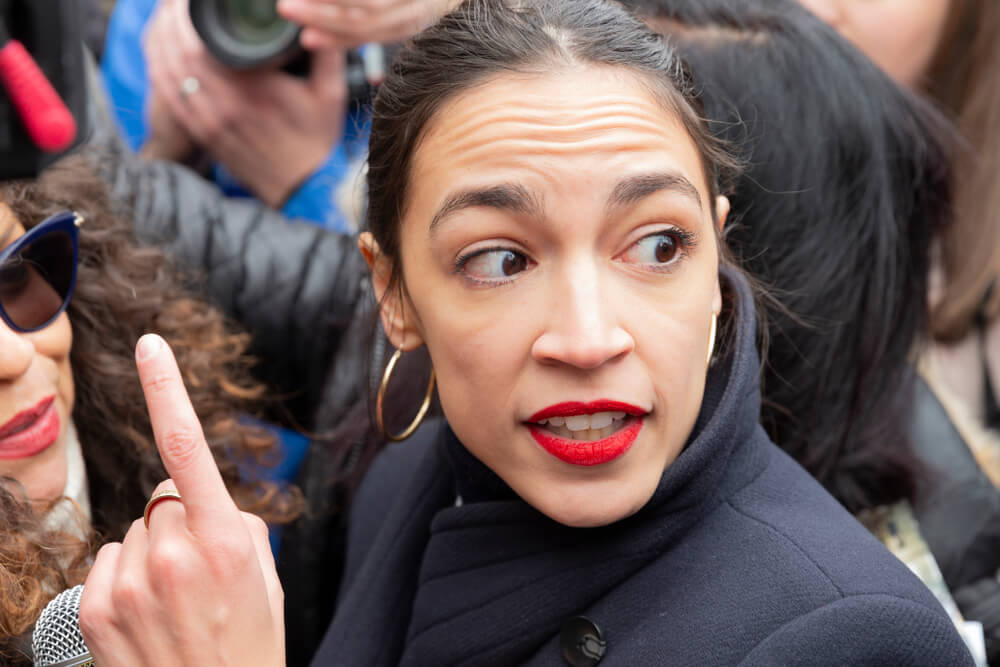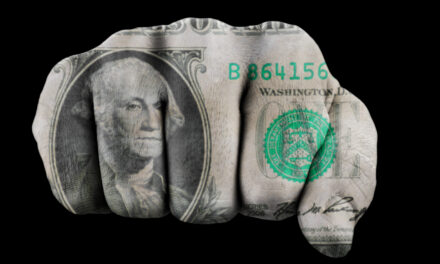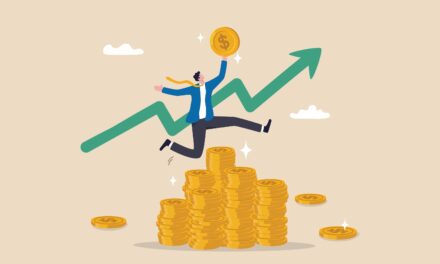Rep. Alexandria Ocasio-Cortez has made the quite the name for herself during her short time in office, recently releasing her “Green New Deal” plan to combat climate change and perceived social injustices.
Most of the points of the Green New Deal elicit an eye roll. For instance, the plan calls for rebuilding or refurbishing every single U.S. building to make sure they are energy efficient, building trains across the oceans to eliminate as much air travel as possible, and banning nuclear energy within the next decade if possible — it isn’t.
But according to a new INSIDER poll, the wild-eyed freshman Congresswoman’s even wilder ideas seem to be taking off with a surprisingly large chunk of Americans. Ocasio-Cortez’s proposal pairs aggressive environmental priorities to combat climate change with investments in infrastructure, jobs and transportation that also would transform the entire U.S. economy.
President Donald Trump referred to the plan as “socialist,” and even House Speaker Nancy Pelosi, the head of Ocasio-Cortez’s own party, dismissively called it the “green dream.”
Nevertheless, the “poll found a plurality of respondents support the Green New Deal and large majorities support the bulk of the resolution’s broad policy goals.”
Per Business Insider:
Here’s what Americans support in the Green New Deal
To start with, INSIDER’s poll found that a solid majority of Americans agree with scientific consensus around climate change.
Nearly 62% of those polled said the Earth is warming as a result of human activities, including burning fossil fuels. 26% said global warming is a result of natural patterns in the Earth’s environment, and just 11.7% said there’s no solid evidence the Earth is getting warmer.
Ocasio-Cortez’s Green New Deal House resolution broadly calls for the US to address climate change through a 10-year mobilization to make the US economy carbon-neutral by moving to 100% renewable energy, while simultaneously guaranteeing a job to every American who wants one.
A plurality of respondents —43.7% — agreed with the “Green New Deal” proposal as a whole. 16.3% strongly agreed, 13.9% agreed, and 13.5% somewhat agreed. Meanwhile, just 14.7% disagreed with it, and about 24.3% said they didn’t know enough to say.
Next, we polled seven individual ideas or components of the deal that would be linked to policy priorities, all of which are quite vague. Given the loose nature of the proposals, we asked respondents how important it was to implement these policy proposals, on a scale with five options running from “not at all important” to “extremely important.”
- The poll found that 87.6% of respondents think it is either somewhat, very, or extremely important that the federal government invest in infrastructure designed to build resilience against climate change-related disasters.
- 87.2% of poll respondents said it’s somewhat, very, or extremely important that the US meet 100% of its power demands through renewable or zero-emission energy sources. 12.7% said this goal is either not so important or not at all important.
- 86% of those polled said it’s important that the federal government enact policies that aim to achieve net-zero greenhouse gas emissions (which would mean no added carbon dioxide in the atmosphere).
- Support for improving the energy efficiency of new and existing buildings was particularly high at 89%.
- And 87.5% of respondents said it’s important that both manufacturing and agricultural businesses and industries be required to be as emission-free as technologically feasible.
- The resolution’s call for major investment in energy-efficient transportation was also popular. 87.6% of those polled said it’s important that the government invest directly in a high-speed rail system, zero-emission vehicle infrastructure, and clean public transit.
And big majorities of respondents supported a broad call for a much stronger social safety net. 78% said a federal jobs guarantee is important. And 69.8% somewhat approved, approved, or strongly approved of the government providing all Americans with high-quality healthcare, affordable housing, economic security, healthy and affordable food, and a clean environment.
While our polling shows significant public support for the general concept of a Green New Deal and most of the plan’s key proposals, it’s not clear to what extent voters will prioritize the issue when compared with other policy priorities.
The survey’s findings also reflect a general shift in US public opinion on climate change in recent years.
A recent survey from the Yale Program on Climate Change Communication and George Mason University found that 73% of Americans said they understood that global warming is occurring — an increase of 10 percentage points from three years ago. 72% of those polled said climate change was important to them.
But do they support the whole bundle?
While individually these policies may be broadly popular — sure, a high-speed rail may sound like a good idea, even to people who don’t think the government should guarantee jobs — the proposals are bundled for a reason.
While responding to climate change is important to many, it’s not typically policy issue number one for large groups of Americans. In many ways, that’s the key innovation of the Green New Deal.
According to the Pew Research Center, Americans from across the political spectrum prioritize policies that address the economy, transportation and jobs. Further, “the economy” and “jobs” regularly appear at or near the top of the list for Americans’ policy goals for the federal government.
So it should come as no surprise that the plan links a jobs and economic stimulus package with environmental priorities. Proponents of the Green New Deal hope the popularity of the economic goals will rub off on that of the climate-related priorities.
A reasonable concern would be that one or more of those priorities could be a poison pill for the package as a whole. But, based on INSIDER’s survey, there is not a ton of evidence to support those concerns.
Of the seven separate planks we surveyed, 30% said all seven were extremely or very important, 17% said six of the seven were important and 12% said five of the seven were important. For comparison, 15% think that none of the seven polled policies are very or extremely important.
And adding in those who think the priorities are at least somewhat important, 66% of respondents went seven-for-seven, saying that each and every component of the plan was somewhat, very, or extremely important. That seems to back the notion of bundling these policy proposals.
All told, 21% of respondents identified as very or somewhat conservative, 31% identified as very or somewhat liberal, with 48% identifying as slightly liberal or slightly conservative, neither, or they declined to say. Support for a Green New Deal and its proposals was strongly linked to whether the respondent said they believed the earth was getting warmer due to human activity, with the exception of one policy.
The weakest part of the Deal
Just 13% of respondents said they approve of the federal government directly investing and maintaining ownership stakes in businesses working to meet the policy goals of the Green New Deal. About 42% of respondents said they either disapprove or strongly disapprove of such action.
The public’s opinion on this issue might be informed by Barack Obama’s largely unsuccessful efforts to create hundreds of thousands of green jobs with the $90 billion set aside in the 2009 stimulus package for clean-energy development.
The program’s shortcomings were highlighted in the government’s relationship with Solyndra, a solar panel manufacturing company that went under after the administration gave the company a $535 million government-guaranteed loan.
The company ultimately filed for bankruptcy after market conditions and unwise managerial decisions caused its revenue to plummet.
Obama’s auto bailouts in the midst of Great Recession are another recent example of government getting involved with private companies. Faced with estimates of more than one million lost jobs if GM and Chrysler folded in 2009, Obama gave billions in loan guarantees to both car manufacturers. At the time, the move was deeply unpopular.
Both companies were saved by their “controlled bankruptcies” and rebounded during Obama’s years, repaying the bulk of their loans. By 2012, public support for the bailout rose to 56%, according to a Pew Research Center poll.




